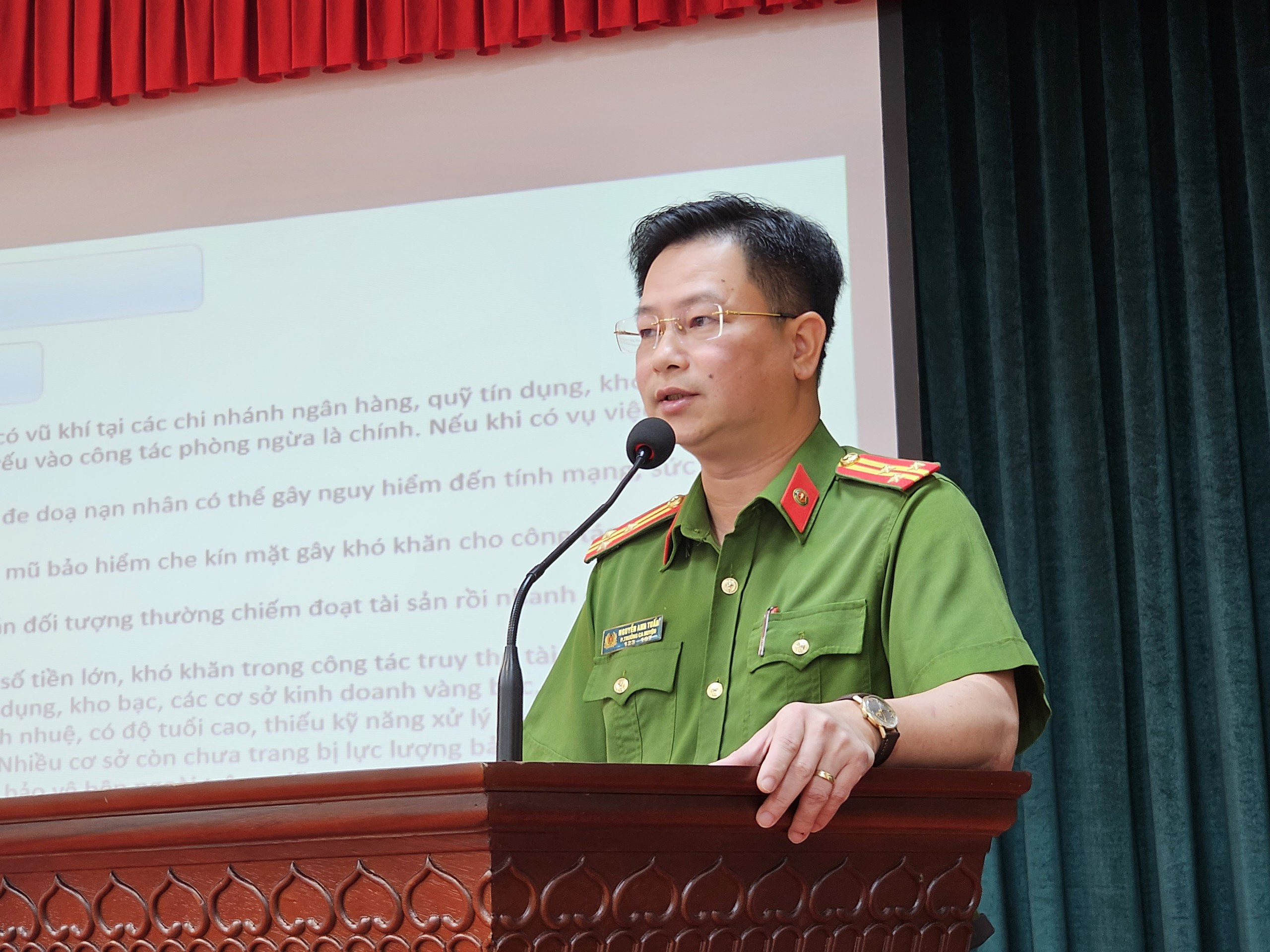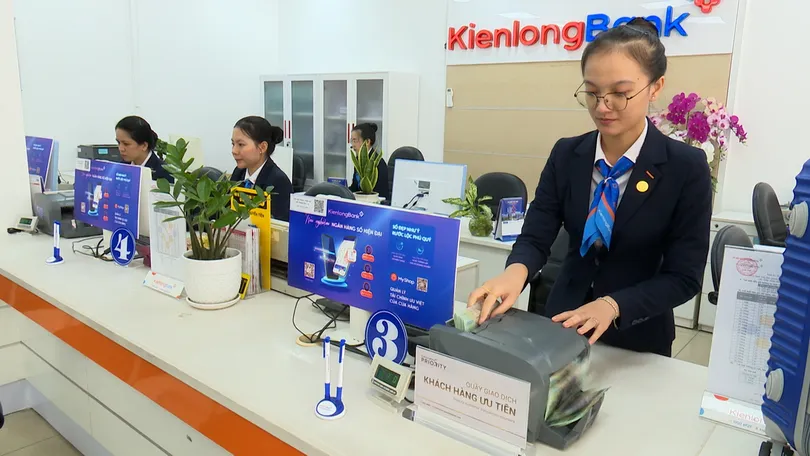Thousands of scams on the internet
In early July 2023, Ms. H, an accountant at a state-owned corporation, received a message from her sister-in-law transferring 5 million VND to urgently resolve some work. After receiving this message, Ms. H contacted her sister-in-law via Messenger but could not hear what the other party said clearly so she had to transfer the money. Later, Ms. H was informed by her sister-in-law that her Facebook had been hacked by a bad person and she was scammed into borrowing money from a series of relatives and friends on Facebook. This is a very old trick but many people still fall into the trap of this type of scammer.
Recently, Ms. PTN, Phu Son Commune, Ba Vi, Hanoi received a call from a subject claiming to be a police officer, informing her that she had violated the law, and in order to avoid having her assets sealed and being detained, she had to open a money transfer account to serve the investigation. Faced with the threats of the scammer, Ms. N followed the instructions and went to Agribank Ba Vi branch to withdraw all of her savings of 260 million VND to transfer to them. Fortunately, the bank became suspicious and reported to the police in time, so Ms. N was not scammed of the above amount.

Recently, MISA Company has received feedback from a number of citizens about being scammed and having their property appropriated through websites and mobile applications impersonating MISA. Specifically, MISA received feedback about a fake website with the domain name https://misavnp.com/ asking individual users to create an account and join the system, enticing them to transfer money for online purchases in order to receive commissions. However, this is actually a new scam, if the victim falls into the trap, the money transferred will go into the scammer's personal account.
In addition, MISA also received feedback about a fake mobile application called “Misa”, which advertises falsely, calling on individuals to invest money in a form called “data package” to receive high profits, even up to 40% - 50%. This fake application requires customers to register for a membership account and provide information about the “data package” purchase program, from which transactions are made to appropriate assets.
Not only MISA, financial institutions and banks such as TPBank, Sacombank, ACB, Zalopay, etc. have recently been impersonated and sent messages to many mobile subscribers. These messages have fake, fraudulent content aimed at stealing people's money. Careless users who access fraudulent websites will be lured into providing personal information such as accounts, passwords, OTP codes, etc. and perform money transfers without knowing it.
According to security experts, the fact that bad guys fake the brand names of banks and e-wallets makes many users lose their vigilance and access fake websites created by them.
Through verification and assessment, it is shown that these fake messages do not originate from the systems of financial institutions, banks and telecommunications enterprises but are spread through fake mobile broadcasting devices. Users who are not vigilant will provide OTP code information for the subject to complete the process of appropriating money in the account.
In addition to the above forms, scammers in cyberspace have recently targeted women to invite them to invest through apps, multi-level marketing, etc. They lure victims to transfer money and appropriate it. After that, the scammers close their social media accounts and remove their phone numbers to cut off contact.
Authorities take action to deal with the problem of fraud in cyberspace
According to statistics from the Criminal Police Department of Ba Vi District (Hanoi), there are currently 21 types of cyber fraud being carried out by scammers. Lieutenant Colonel Nguyen Anh Tuan, Deputy Head of Ba Vi District Police, said that cybercrime has increased dramatically, especially after the impact of the Covid pandemic, which has caused economic difficulties and increased unemployment.
Lieutenant Colonel Nguyen Anh Tuan said that the crime situation related to property appropriation on the Internet has recently increased, causing great damage to people's property, causing public outrage, affecting security and order in the area. The subjects use social networks to connect to send gifts, then impersonate the post office, customs to demand money to receive gifts. The subjects even impersonate the police, the prosecutor's office, the court to make phone calls to threaten people and demand money transfers, then appropriate it. Bad subjects also take control of social network accounts, then text messages to trick people into borrowing money; set up fake websites to trick people into taking OTP codes and appropriate money in bank accounts. Most recently, the trick is to make phone calls to inform relatives and students who have had accidents and need emergency money.

Mr. Tran Quang Hung, Deputy Director of the Department of Information Security, Ministry of Information and Communications, said that in the first 6 months of this year, online fraud increased sharply by 64.78% compared to the same period last year.
“Statistics show that the victims of online fraud are shifting strongly to the elderly, children, students, and low-income workers. This is a shift we have seen quite clearly this year. Financial fraud focuses heavily on this group of people. As technology develops and smartphones become more popular, children, the elderly, students, and low-income workers now all have smartphones. Although they have access to technology, the ability to recognize signs and fraudulent behavior of these groups is still quite low. Therefore, fraud groups have focused heavily on these groups,” said Mr. Tran Quang Hung.
The Information Security Department said that fraud organizations have been formed, concentrated in many neighboring countries. Previously, it was Cambodia, recently there have been fraud groups in Laos, the Philippines, etc. These groups also gather many Vietnamese people to participate, concentrated in their facilities in these countries. This also leads to a stronger online fraud situation.
“Technology develops very quickly, bringing us many conveniences. Therefore, modern conveniences and technologies are used by scammers to create faster, more effective, more realistic scam systems, making them very difficult to identify. That is one of the reasons why the Ministry of Information and Communications and the Department of Information Security have just launched a campaign to identify and prevent online scams,” said Mr. Hung.
Mr. Hung believes that, in addition to handling the technology aspect, handling the root cause of online fraud, it is necessary to promote propaganda about popular forms of online fraud to as many people as possible. Obviously, when each citizen, each vulnerable group in society knows that there are such forms of online fraud, they will also be more vigilant and thereby help reduce online fraud cases in the future.
“We really hope that the press and media agencies will coordinate with the Department of Information Security so that when there is any new form of fraud, or new method, or new online fraud campaign, please join us to spread this information as quickly and as soon as possible to the people. We also know this behavior in advance to handle it. Besides, we also really hope that the people, those participating in cyberspace, when there is any information about online fraud, please boldly inform the authorities, such as the nearest police agency, or the information receiving systems that the Ministry of Information and Communications is operating such as the National Cyber Portal, Call Center 156 or 5656, to help us know information about online fraud cases as soon as possible and from there have measures to handle and minimize the situation of online fraud", Mr. Hung emphasized.
Lesson 5: Psychological manipulation, a classic trick of scammers
Source





![[Photo] Overcoming all difficulties, speeding up construction progress of Hoa Binh Hydropower Plant Expansion Project](https://vstatic.vietnam.vn/vietnam/resource/IMAGE/2025/4/12/bff04b551e98484c84d74c8faa3526e0)
![[Photo] Closing of the 11th Conference of the 13th Central Committee of the Communist Party of Vietnam](https://vstatic.vietnam.vn/vietnam/resource/IMAGE/2025/4/12/114b57fe6e9b4814a5ddfacf6dfe5b7f)
























































































Comment (0)